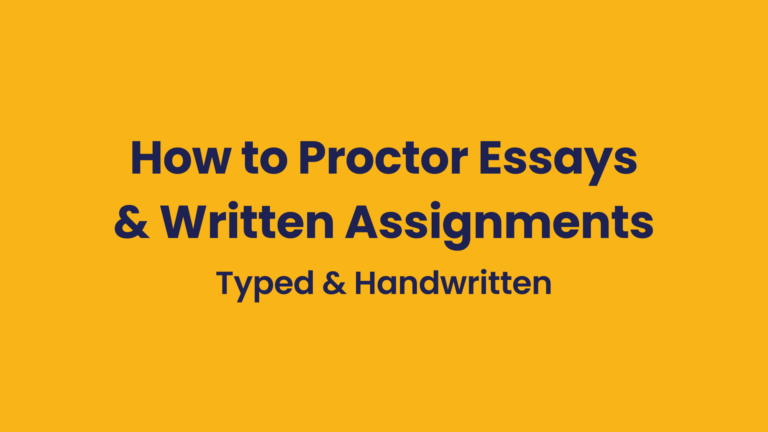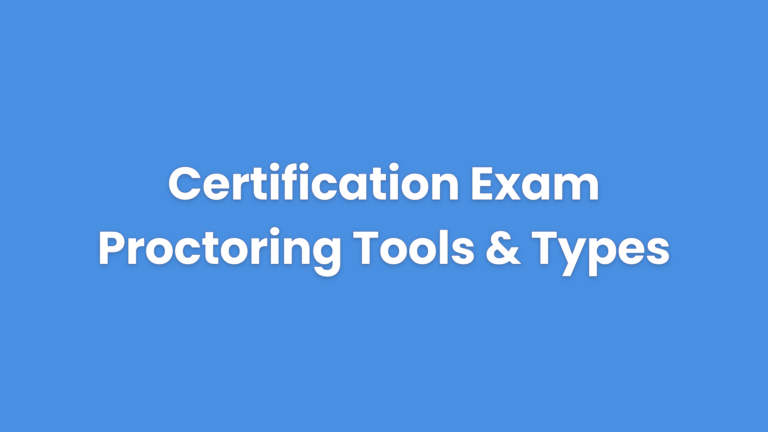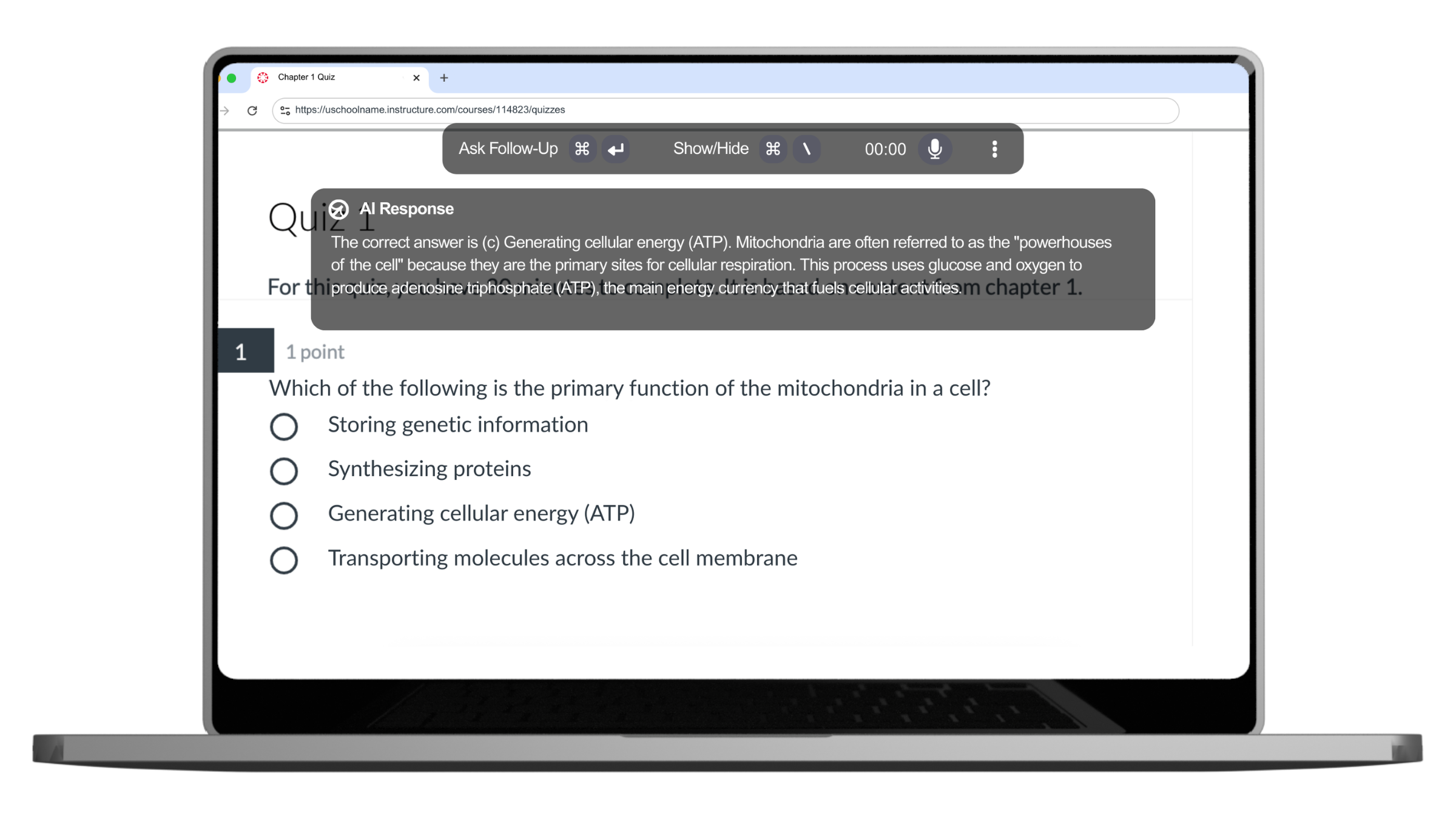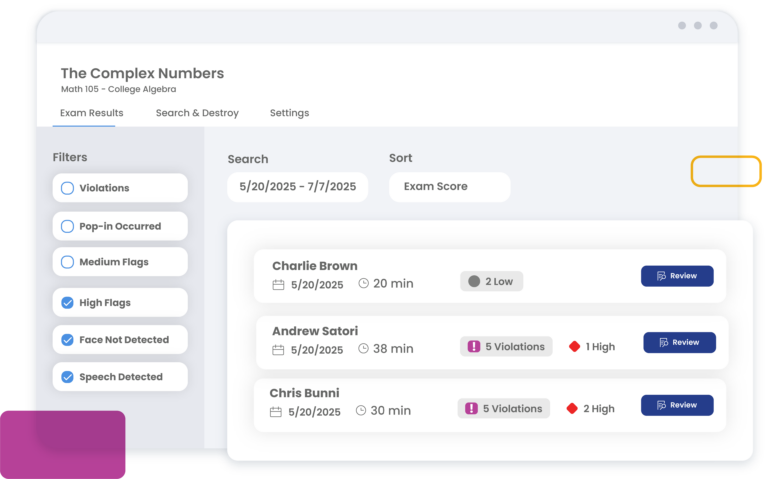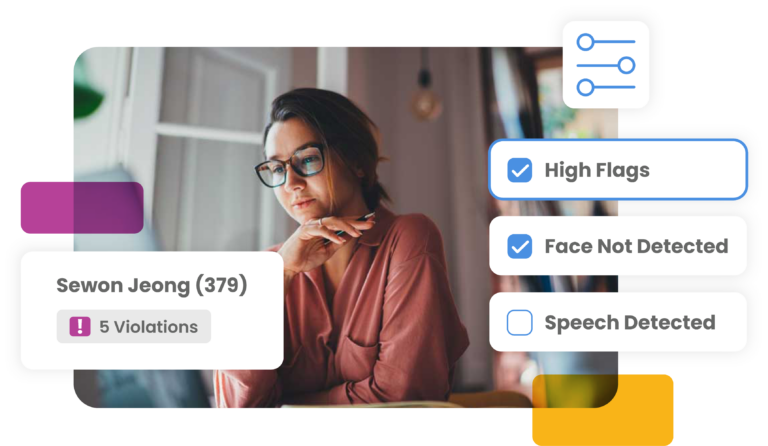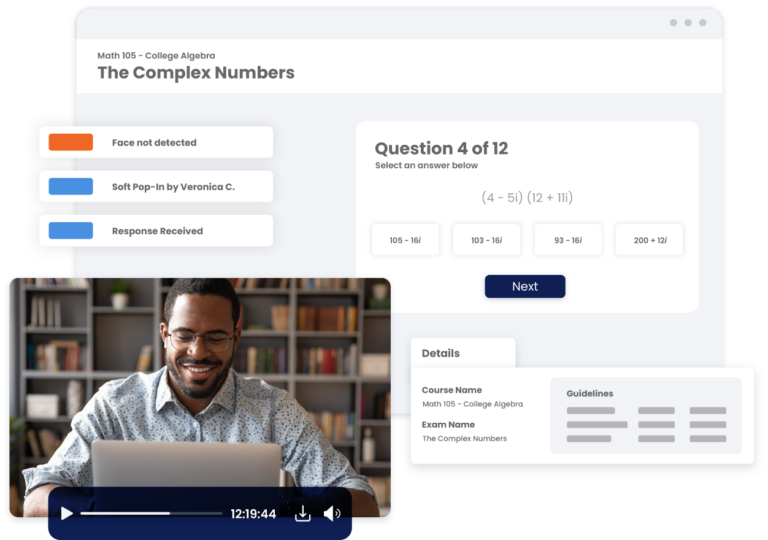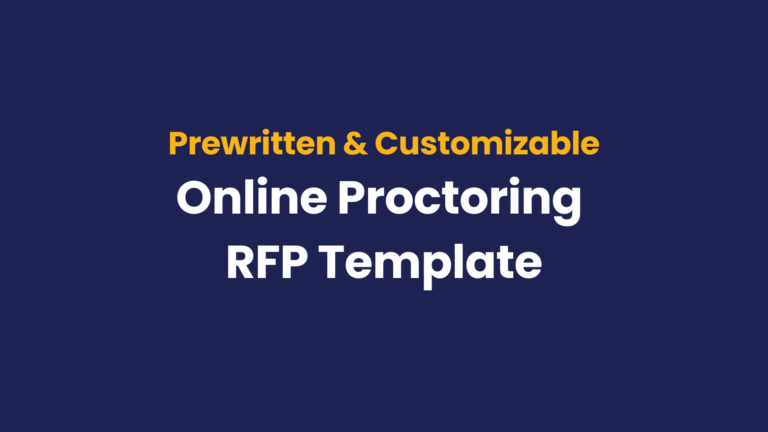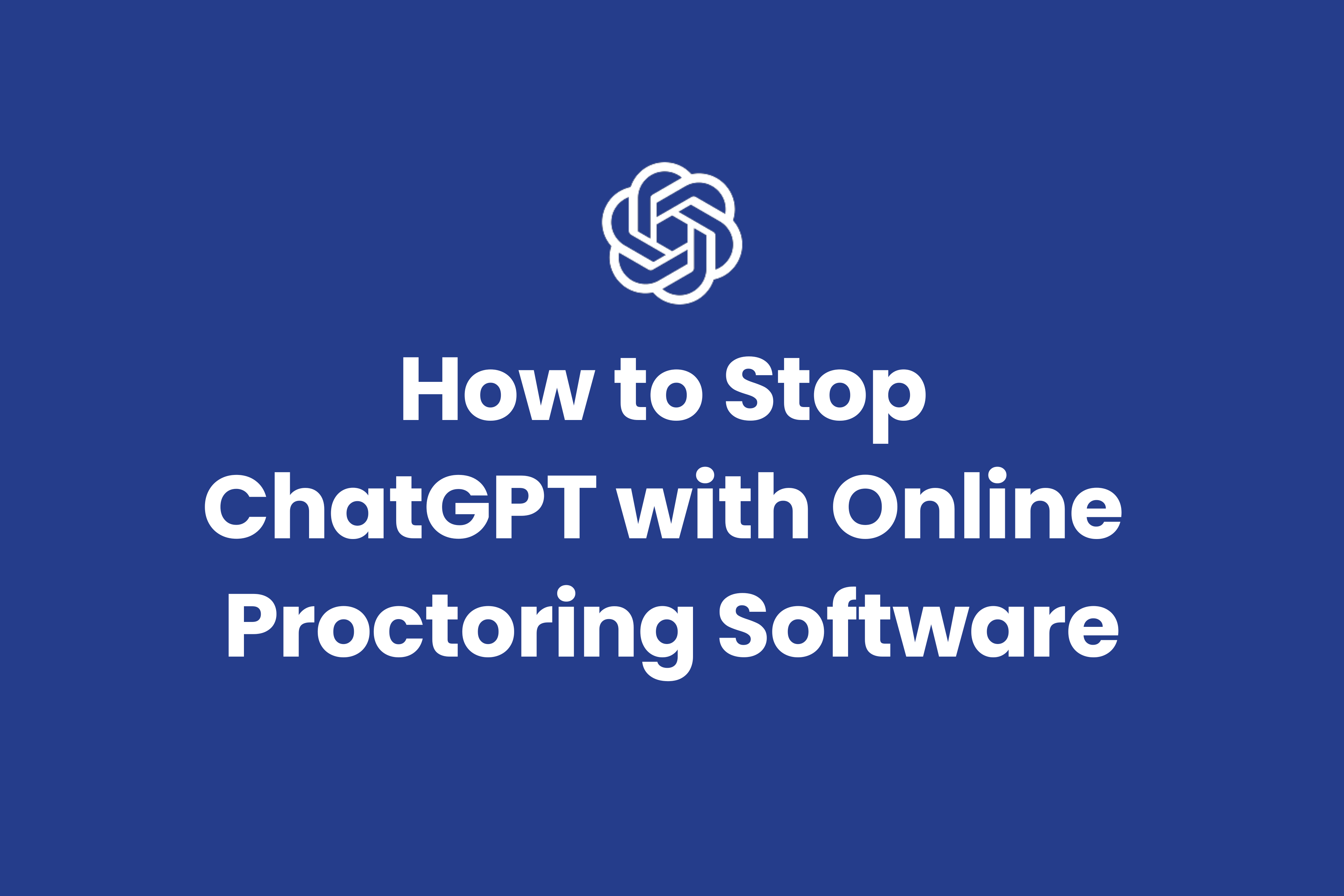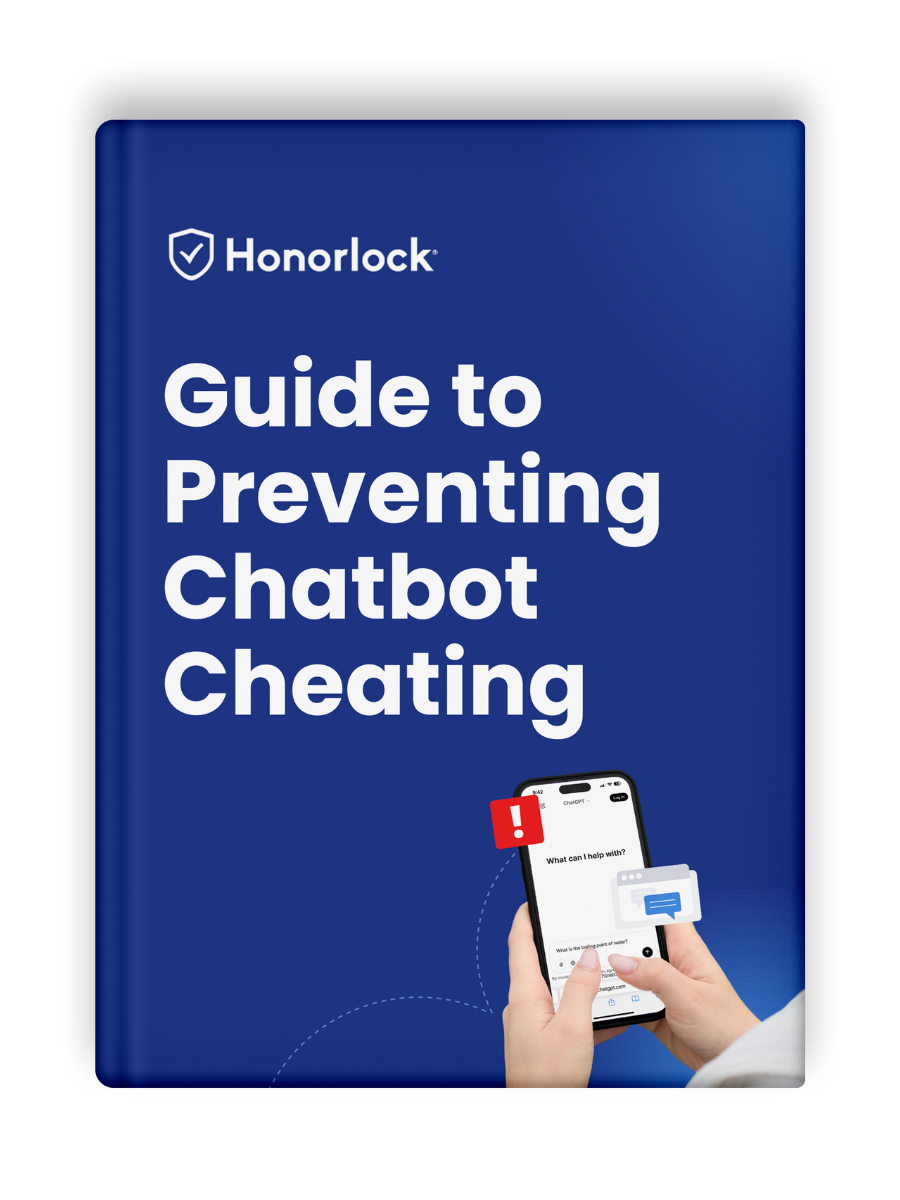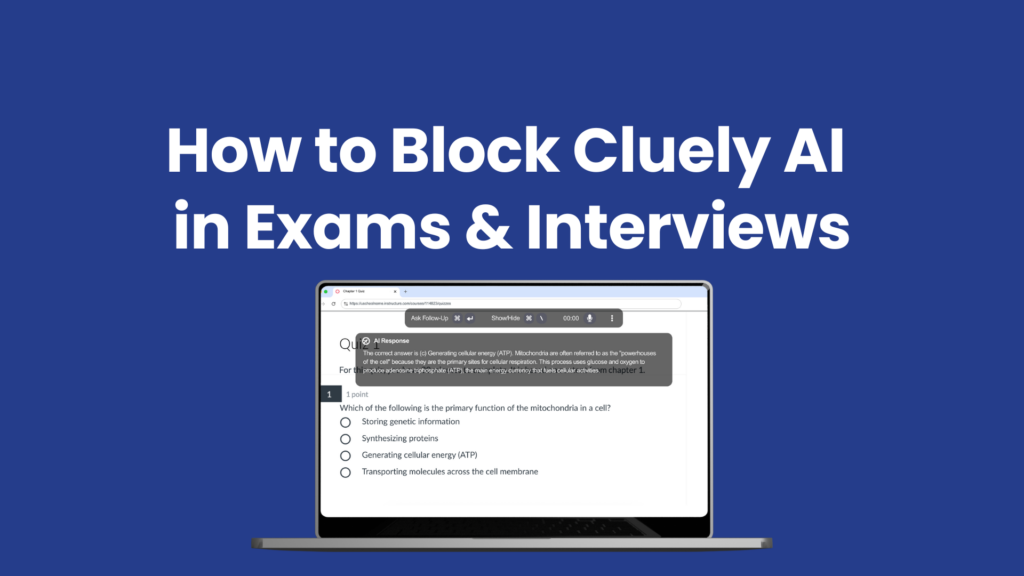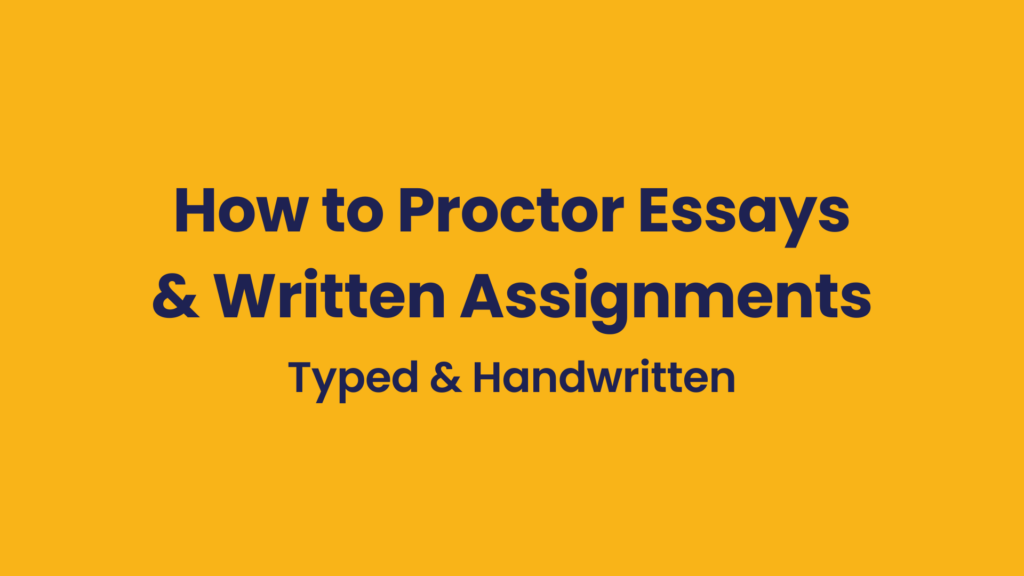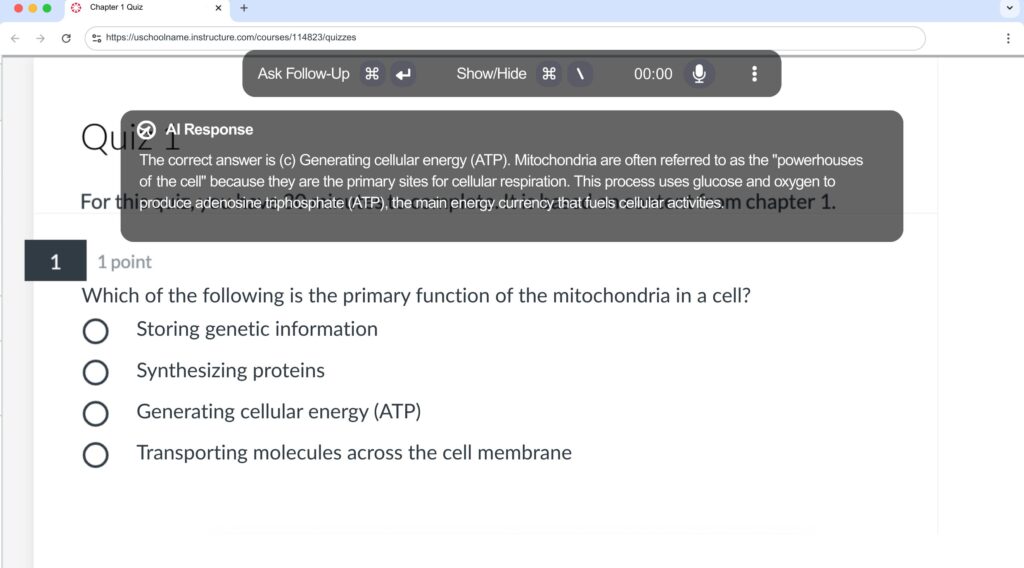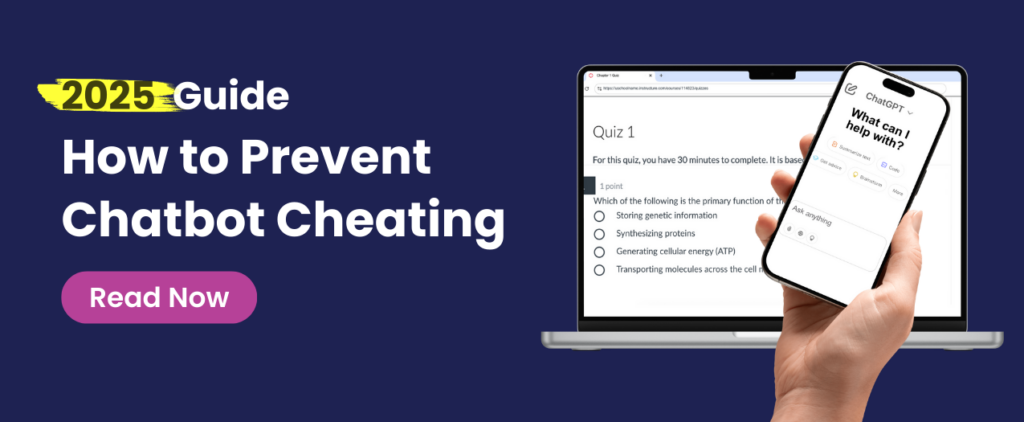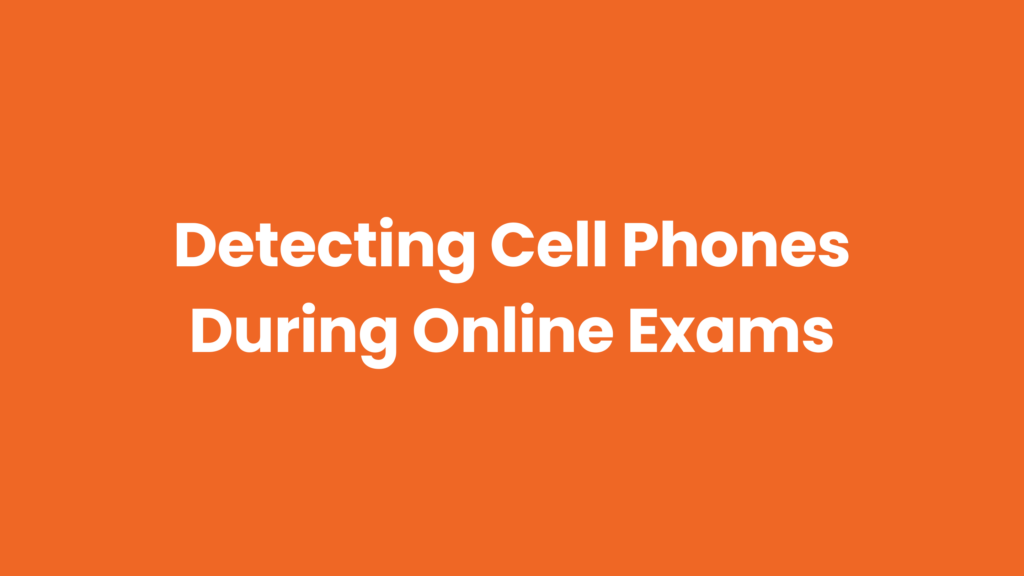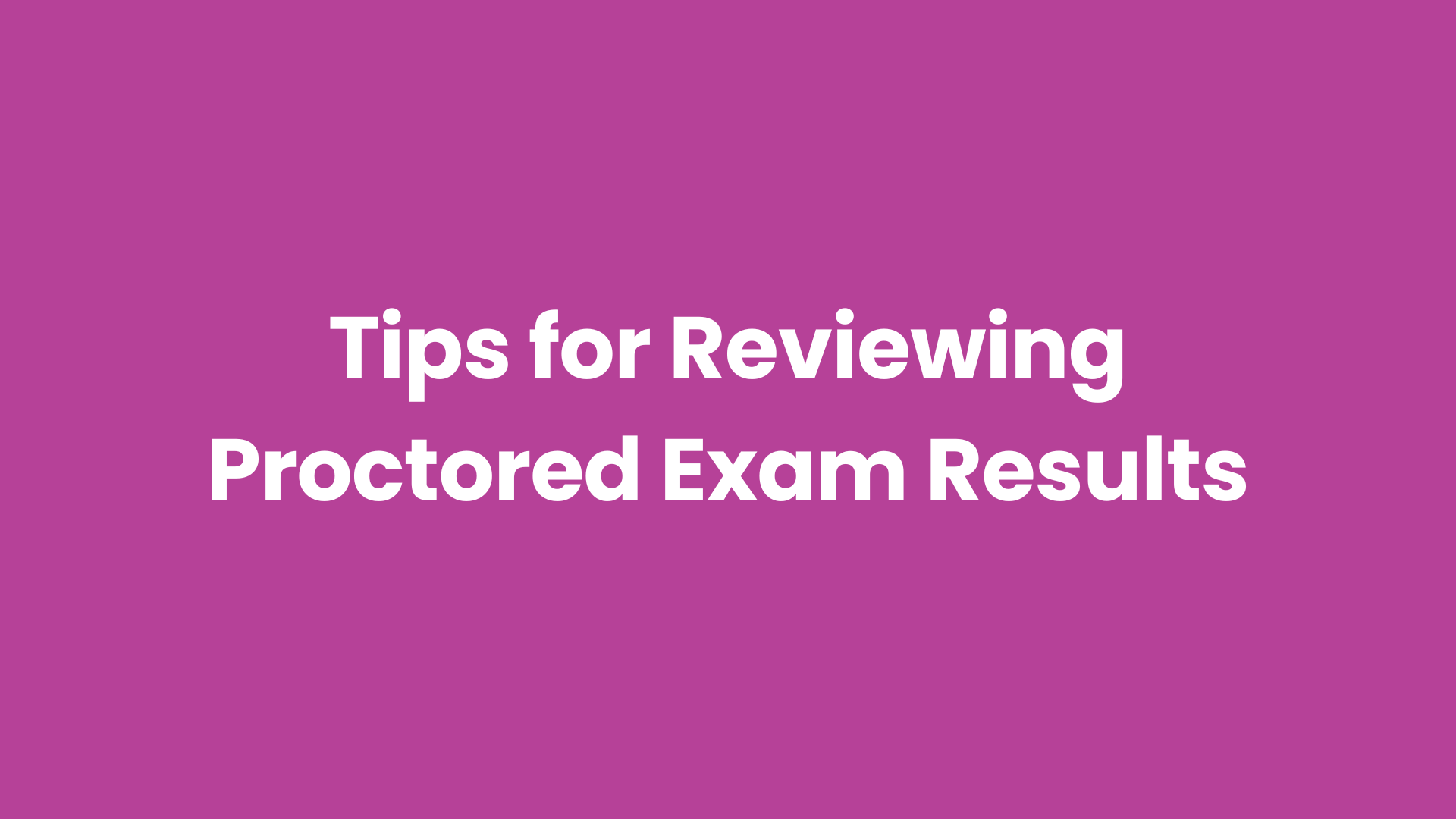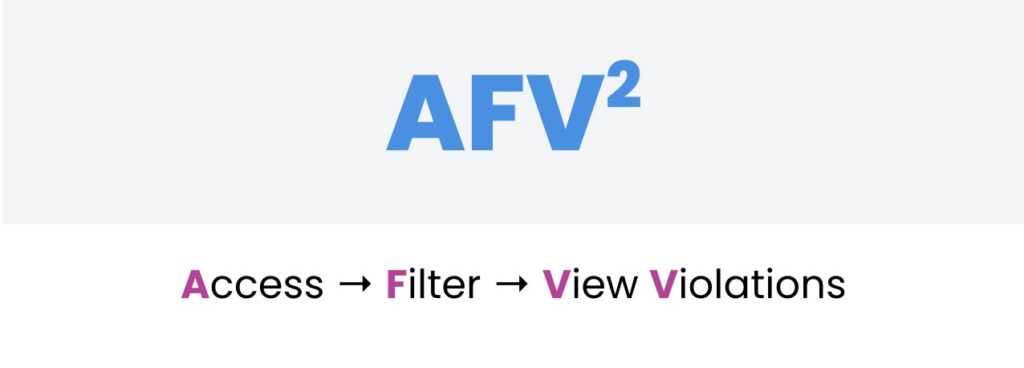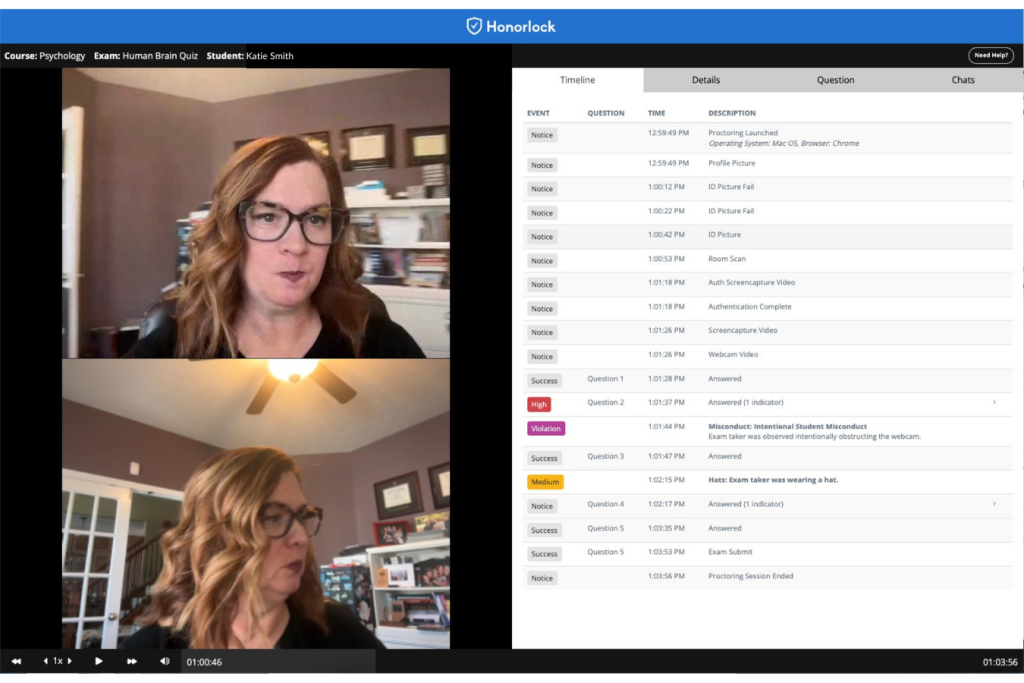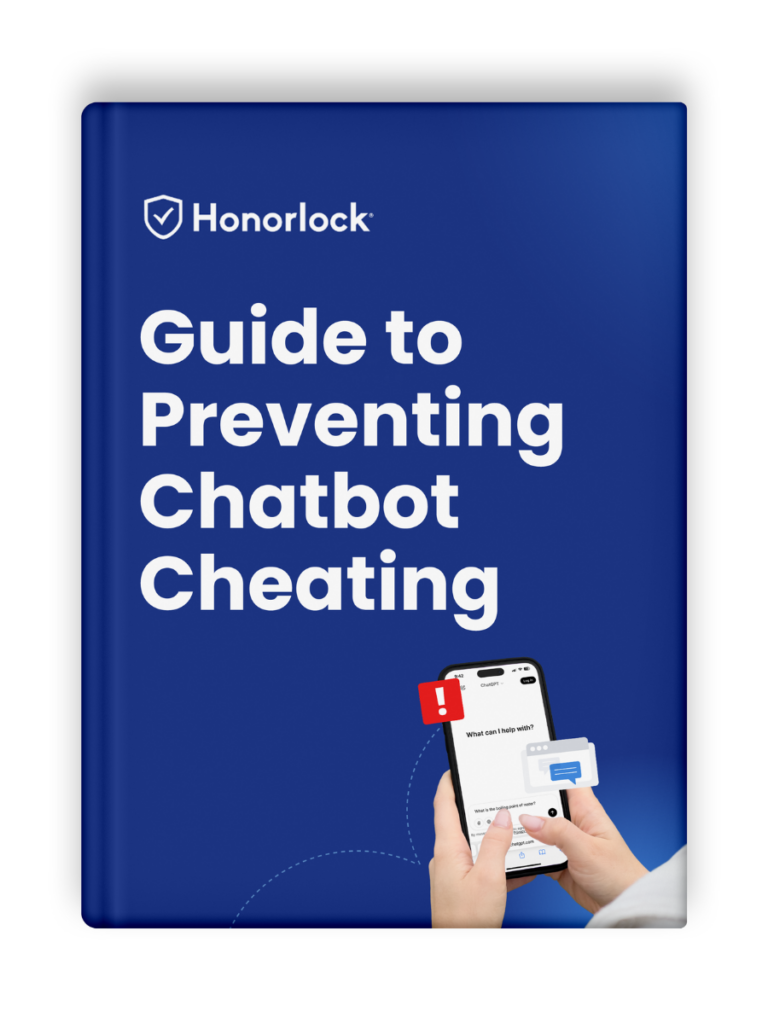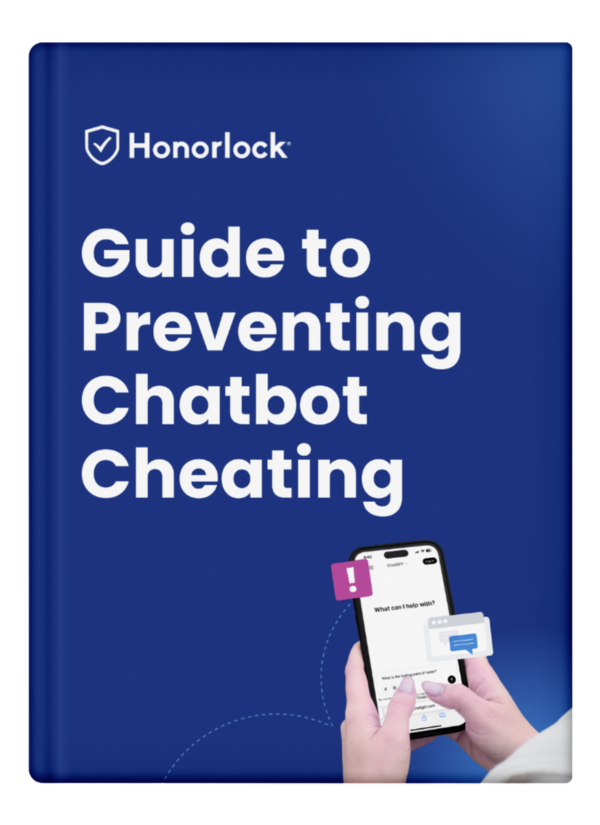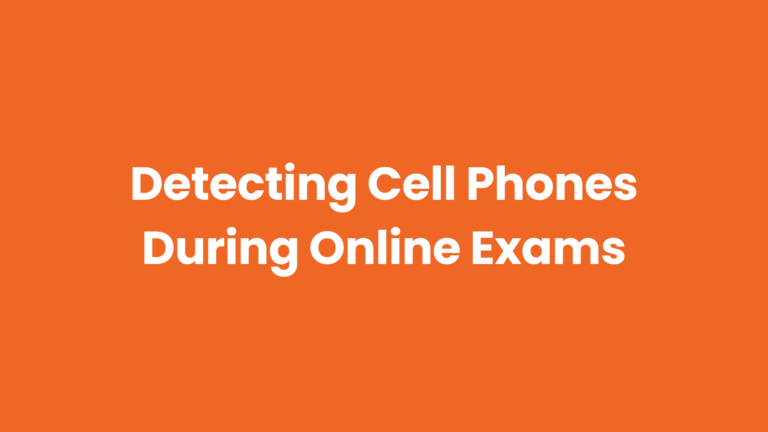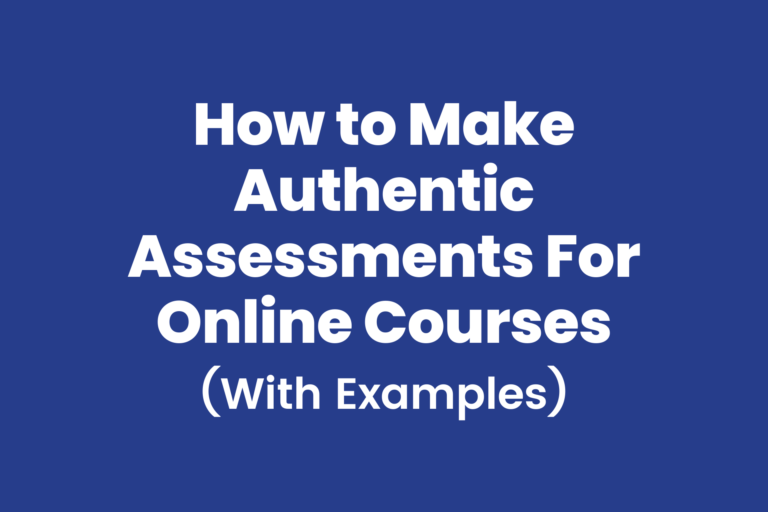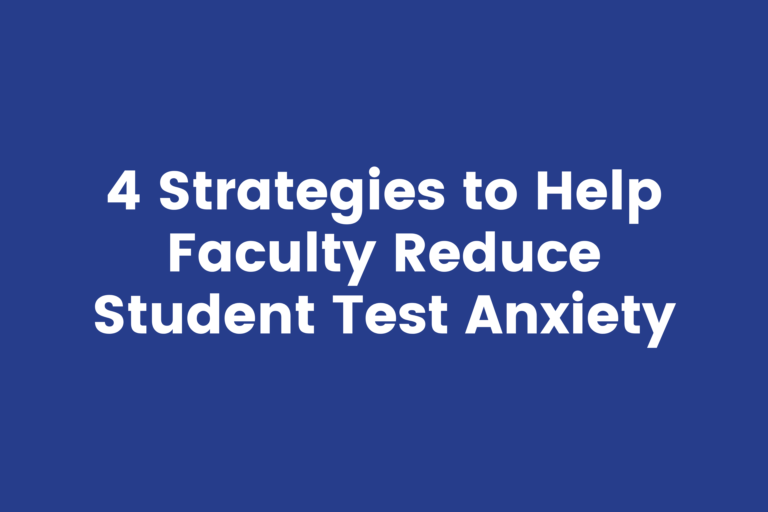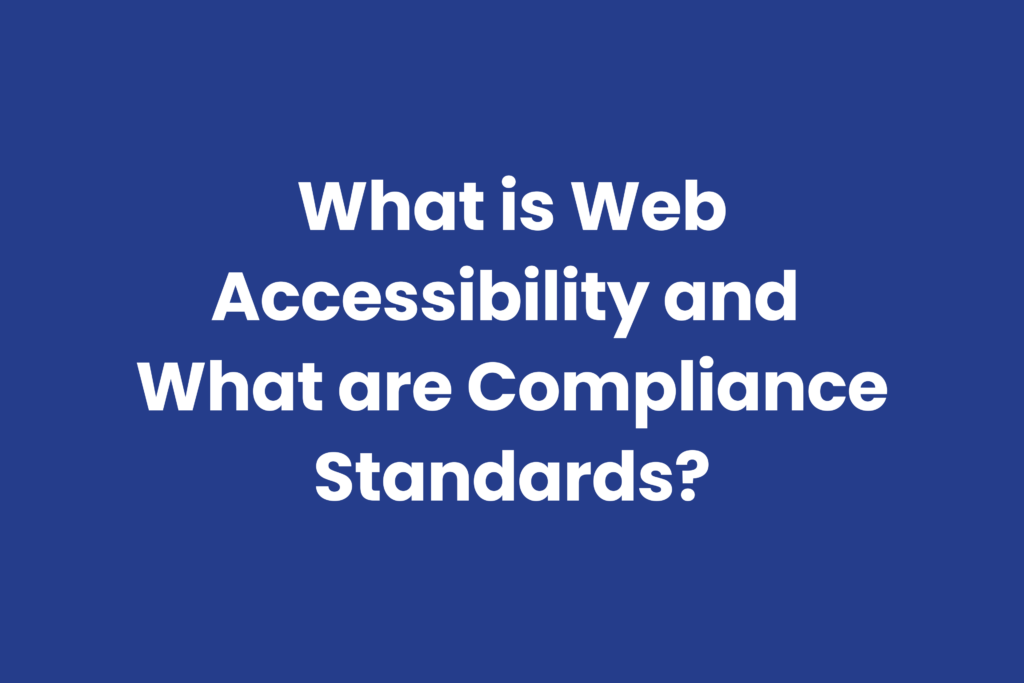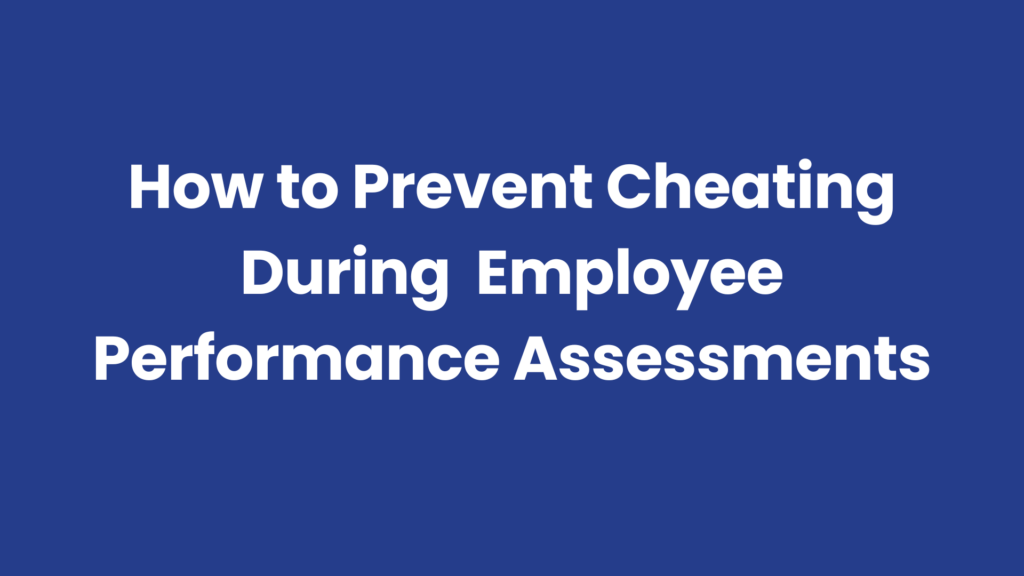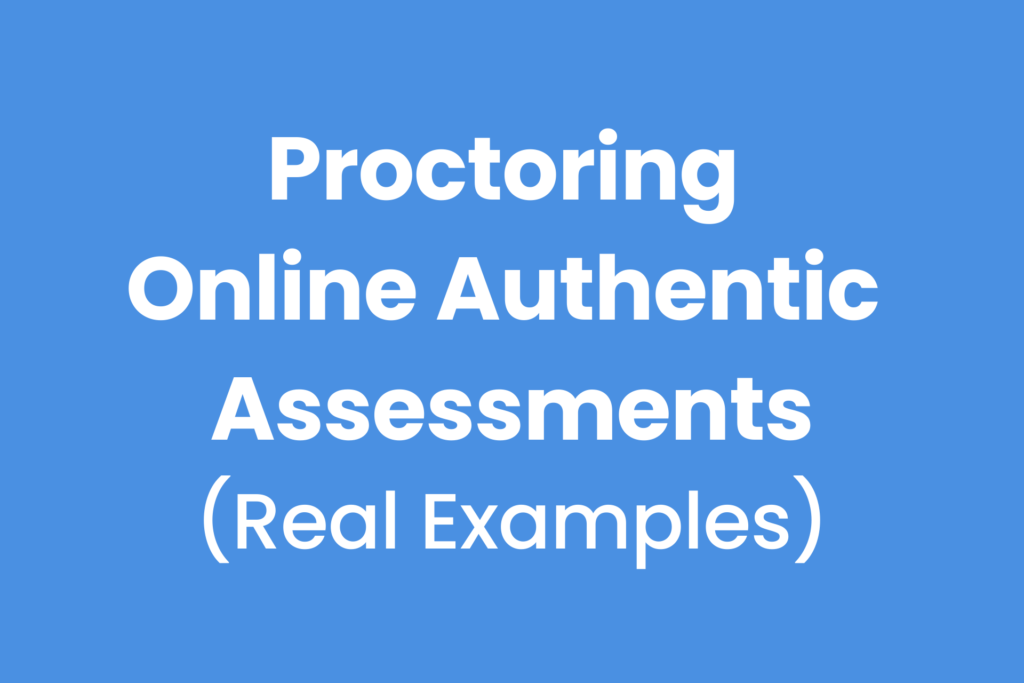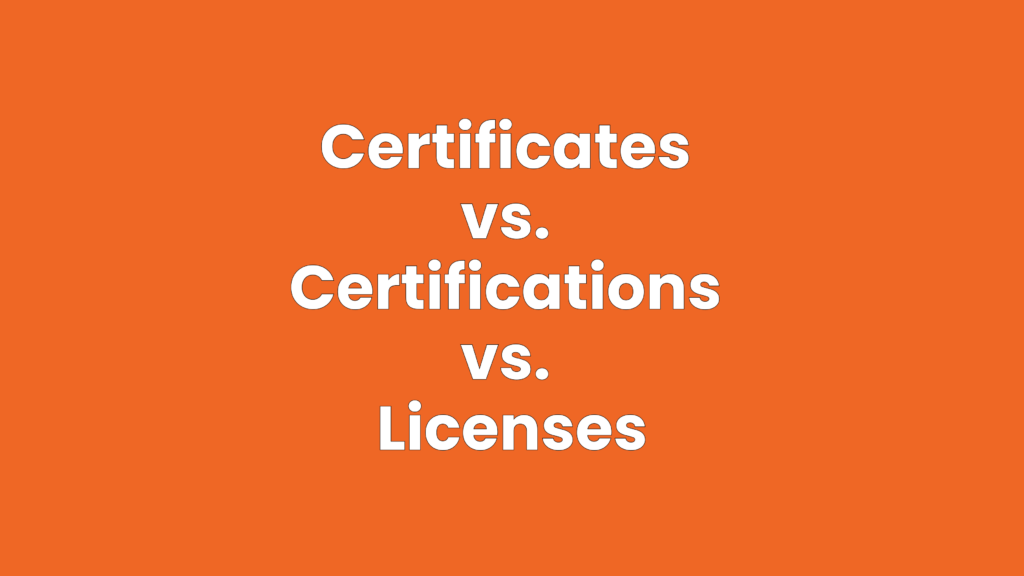Browser lockdown software can help protect exams to a certain extent, but it isn’t enough to prevent cheating on exams. It can help block basic misconduct like accessing websites and opening new tabs, but it won’t stop test takers from using cell phones and other devices, which is half the battle.
‘If the goal is to check the box that your institution proctors exams, locking the browser works. But if your institution actually wants to prevent cheating and protect academic integrity, you’ll need a real proctoring solution.
This article shows you what browser lockdown software can and cannot do and provides other proctoring solutions to solve for areas that browser lockdown software may miss.
What is browser lockdown software?
Browser lockdown software is an automated proctoring solution that can help prevent cheating on online exams by restricting access to other browser tabs and websites, and blocking keyboard shortcuts such as copy and paste.
Here’s what browser lockdown software can do:
- Restricts access to other websites, browsers, and applications
- Disables keyboard shortcuts and functions such as printing, and copy and paste
- Removes toolbar and menu options such as browser refresh, back, forward, and stop
- Blocks the ability to resize the browser window
Why browser lockdown software isn’t enough to protect online exams
The features of browser lockdown software highlighted above will help prevent cheating, but there are significant things it cannot do.
Browser lockdown software can’t see the student
While a browser lock can “see” if a student attempts to access another browser tab or computer application or if the student attempts to use keyboard shortcuts, it doesn’t offer the benefits of video proctoring, which uses the student’s webcam to view them during the exam.
Video proctoring often involves recording the student’s exam session for later review by the proctor and instructor. Video proctoring is especially useful because it allows ID verification and can tell if a student is using unauthorized resources or if another person is in the room.
Browser lockdown software can’t detect cell phones
A student can simply use their cell phone or another device to look up test questions and answers on the internet.
Cannot detect voices or audio
Browser lockdown software can’t hear when a student may be talking on the phone or asking a friend for an answer to a test question.
Some online proctoring software monitors the exam session and goes beyond simple audio detection by listening for specific keywords or phrases, such as “Hey Siri” or “OK Google.”
A browser lockdown can’t verify student ID
ID verification is a priority before proctored exams and a basic browser lockdown doesn’t help solve this. Without video proctoring, browser lockdown software can’t verify ID.
Browser lockdown software lacks the human touch of online proctoring that students deserve
Because browser lockdown software is only an automated proctoring solution, there’s no human touch involved to help support students during the exam. We know that exams can cause anxiety and that technical issues can happen during the test and that’s where a human proctor can help students successfully complete their exams. Online proctoring services that combine AI test monitoring with human proctors are the best of both worlds.
Online proctoring options when browser lockdown software isn’t enough
The good news is that Honorlock provides a browser lock as a part of our standard proctoring features, but it also provides many more features and benefits such as:
- Video proctoring
- Detecting cell phone use and voices
- Blending AI test monitoring software and live proctors
- Verifying student ID
- Reducing unauthorized use of your test questions and content on the Internet
Honorlock can detect cell phone use during proctored exams
Honorlock proctoring software can detect when students use a cell phone, tablet, or laptop to access test bank content during an online exam.
The proctoring software also captures a screen recording of specific websites that the student visited to provide evidence in the event of a violation. The recording can be reviewed by the instructor to determine if academic dishonesty occurred.
Advanced video proctoring
Early forms of live video proctoring were unsettling for students because many didn’t appreciate having a remote proctor’s face hovering on the screen during the entire exam.
Honorlock’s video proctoring allows:
- 60-second ID verification
- Room scans to make sure that no other people or test resources are present
- Second camera and side angle behavior monitoring
Detects voices with Honorlock proctoring software
Honorlock’s smart Voice Detection feature listens for specific keywords or phrases to identify students who may be talking to another student or using Siri or Alexa to get the answers to test questions. If the proctoring software detects potential academic dishonesty, it alerts a live test proctor to review and intervene if cheating occurred.
Helps protect your test questions and answers from unauthorized use on the Internet
You’ve probably heard of students finding and sharing test questions and answers on test banks and homework-help sites. Maybe you’ve even seen your own test content on the Internet. It’s frustrating and it’s quick and simple for any test-taker.
However, Honorlock’s remote proctoring technology searches for leaked test questions, answers, and content and can also request the removal of the material by filing DMCA copyright takedown notices.
Blends AI test monitoring with live test proctors
Live Pop-in™ protects online exams, reduces test anxiety, and provides a less intimidating and noninvasive testing experience. AI alerts a live remote proctor to review and intervene (if necessary) to address the situation.
Choose to proctor online exams a better way
Browser lockdown software checks the box as a first line of defense against academic integrity but with all its shortcomings, choose to proctor online exams a better way with Honorlock. Our approach to online proctoring creates a non-invasive and fair testing environment that benefits the student, instructor, and institution.





